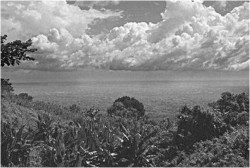|
||||
Education in a competitive world -- Dr S.M.A. Faiz Higher education deficits in a drift -- Abdul Mannan Education for All-Beyond business as usual -- Rasheda K. Choudhury Islamic education heritage -- Dr A.M. Choudhury Economic diplomacy: Awaiting thrust -- Muhammad Zamir A wake-up call -- S. M. Rashed Ahmed Chowdhury New opportunities: New Challenges -- Syed Muazzem Ali Foreign relations: Taking a direction -- Ashfaqur Rahman Indo-Bangla ties: Old shadow, new vista -- C M Shafi Sami Towards a kinder, gentler peacekeeping -- Tazreena Sajjad Independence of the Higher Judiciary -- Asif Nazrul Problems of delay and backlog cases -- Dr. M. Shah Alam Juggling freedom and responsibility -- Shahid Alam Tourism in Bangladesh -- G. M. Quader MP The industrial policy dilemma -- Zahid Hussain 'Consumer redress' and 'empty pocket blues' -- Tureen Afroz How assertive has the Election Commission been? -- Manzoor Hasan Does the Election Commission exercise all its powers? --Mohammad Abu Hena Adivasi's tears and grief -- Sareeta Haider Architecture: How Green is Green? -- Ar. Zebun Nasreen Ahmed Chittagong Hill Tracts: Development without peace -- Naeem Mohaiemen Revisiting the BDR saga -- Brig Gen Shahedul Anam Khan ndc, psc, (Retd) Sexual harassment and our morals police -- Hana Shams Ahmed Garnering efforts is a sign of growing up -- Dr. Nizamuddin Ahmed Rationalising the Intelligence services -- Muhammad Nurul Huda
|
||||
Tourism in Bangladesh G. M. Quader MP
I quote below a portion from the "Authors Story," of the Book titled "Bangladesh," written by Mikey Leung and Belinda Meggitt to be used as a guidebook. "While some people question the need for a guide in a country with so few foreign tourists, this simple fact is what makes the need for a new guide so great. This is doubly true for Bangladesh, whose world reputation takes regular beatings in the foreign press when it makes the headlines for catastrophe. To all those who doubt, we now ask you to seek the reality behind the veil, to notice the color hidden in the corners, and to search the beauty hidden inside this friendly region of south Asia whose people may be short on space and material wealth, but possess hearts of infinite kindness. By looking deeper and staying for as long as you possibly can, a real picture emerges of a vibrant and diverse country whose secrets are waiting to be discovered below the surface." The statement clearly expresses extent of beauty of Bangladesh with the depth of its attraction to the outside world, indicating potential for tourism. Present status of tourism as seen from a recent study done by Royal Danish Embassy, Dhaka with the help of Danida states, "Bangladesh is still one of the countries in the South Asian region with the fewest arrivals and the lowest revenue earned from the tourism industry. Nevertheless, tourism has since the 1990s been a small but rapidly growing sector of Bangladeshi economy." (2008). Bangladesh as an international destination has a mixed image. People from outside perceive a negative perception of Bangladesh from news media, which is understandable. The country is depicted as a place where the population is living in poverty, where corruption is rampant and the area is prone to natural disasters. But, the new seven natural wonders search 2009 and charting as one of the top ten interesting destinations by new travel books have made the country attractive for tourism. There is no doubt that tourism is an effective development tool, especially in rural areas and the developing world. It helps economy as revenue is generated; country gets benefited as well as the private sector and local community. Consciousness on preservation of nature and protection of environment tends to increase. Local culture and heritage get nourishment resulting from social well being and stability. Tourism promotes better cross culture understanding But, the presence of tourism in any destination always brings with it environmental and socio-cultural as well as economic impacts. Less developed destinations are more vulnerable. Development of tourism brings external money flow, which pushes the living cost of the locals to higher level. Environmental resources are put to high pressure, fauna and flora are disturbed. With lots of outsiders flocking, local cultural values and traditions are threatened, prostitution and crime result. Development of tourism on a long-term basis is to give due consideration to the above impacts for its sustainability. UNWTO (United Nations World Tourism Organization) defines sustainable tourism as "Tourism that meets the needs of present tourists and host regions while protecting and enhancing opportunity for the future." Development of sustainable tourism is always a big challenge. National Strategy for Accelerated Poverty Reduction II, for financial year 2009-11 prepared by Planning Commission, government of Bangladesh, has included in section 4.3.7 "Development of Tourism" as "The main goal of the tourism sector is to develop tourism for providing accessible, comfortable and safe tourism services to people, both local and foreign." It is followed by items wise development targets and strategy. For development of long term tourism in Bangladesh a pragmatic tourism policy has been developed giving due consideration to all the above. Tourism cannot be done by any single ministry. Even it is difficult for the government as a whole, though government will have to be the main driving force in any case. It needs to have the coordination and cooperation of all concerned ministries and the other stakeholders. Tourism development will have to be a collective effort with a holistic approach.
With that view in mind, three committees have been formed at different level of government having representations from all the concerned ministries and also the stakeholders from the private sector. The idea is to have coordination and cooperation for formulation of action plan and for its proper implementation with a view to develop tourism. Committees at different level are formed so that in case of lack of direction of any kind arises at some point could be resolved at the higher committee. Prime Minister being the head of the highest body National Tourism Council there is scope for resolving any issue. A bill has been drafted to enact a law for conservation of all tourism attractive places by declaring those as tourist zones, for creation of some exclusive tourist zones among the said places and for allowing investment by local or foreign, government or private enterprises either singularly or jointly for development of tourism facilities. Tourist zones would be developed as per government plan and no permanent change of any kind in those places would be allowed without government's clearance. By creating some rules under this act certain definite activities would be allowed to be carried out under some restrictions in exclusive tourist zones. Master plans are under preparation for development of Cox's Bazar up to Teknaf, St. Martins Island and also for Kuakata area. Formation of Cox's Bazar Development Authority and declaring Kuakata as a municipality are under process for implementation and supervision of planned development. Similar plans would be developed for other tourist destinations. Existing laws guiding activities of travel agents and hotels are under review for modernization with necessary amendments. New bills are under preparation in respect of Tour Operators, Hospitality management training centers and institutions, and Tour Guides. The idea is to All the spots, places, occasions and festivals, which could be considered tourism attractions are being identified, classified type wise with its present status. Development, modifications and other actions necessary, with the agency/ministry to carry out the same are also being chalked out in detail and time frames have been assigned and are being mentioned. A time bound plan up to the year 2014 and another up to 2021 are also prepared. All concerned ministries are provided with the portion of their job for development of tourism. A program for production of promotional items is being chalked out and a vigorous campaign is under process both inside and outside the country. A tourism month is planned for this in the year 2010, and a year long campaign is under consideration for the year 2011. Another bill is drafted to form a national tourism board on the concept of public-private sector partnership. It would have members from tourism related government ministries and from different sectors of tourism stakeholders. Secretary ministry of tourism would be its Chairman. There would be an executive body. The function of the board would be to formulate, coordinate, supervise and implement activities relating to overall development of tourism. Ministry of tourism will be involved directly with the construction of infrastructure and take other development works for tourism with the help of its subordinate bodies singularly or under joint ventures with other government or private organizations. But, ministry will mostly work as a catalyst to promote similar activities under other ministries and agencies. Ministries would be encouraged and assisted to develop and operate tourism facilities on its own either directly or under joint ventures with private sector. Deputy Commissioners of the districts have been advised to form tourism cells where local stakeholders of tourism sector will also be members. The purpose is to assist development of tourism in the district by providing information, protection and assistance to tourists, to build new infrastructure with the help of local government or by involving private sector, operate and maintain the same. Tourism in Bangladesh has its potential. But, it has its challenges too. Development on a long-term basis needs to give due importance to its sustainability. It needs a long term planning, development works to be continued for long, importance to be given to evade the negative impacts in a well coordinated and predetermined manner involving timely investment of substantial amount. Proper preparation is required before any measure, which may make the progress slow. Finishing could be time consuming due to lack of investment. Continuity of implementation is essential which necessitates subsequent governments to carry forward the same. The primary requirement for development of sustainable tourism as per World Travel and Tourism Council (WTTC) is "government recognizing Travel and Tourism as a top priority." In the present context of the economy and considering other burning priorities, it may not be possible to accord it that place immediately. For the reasons mentioned no dramatic achievement should be expected within a short time. But efforts are being taken and some progress made in the direction of systematic development in the tourism sector. The process must be carried forward to fruition. |
||||
© thedailystar.net, 2010. All Rights Reserved |


